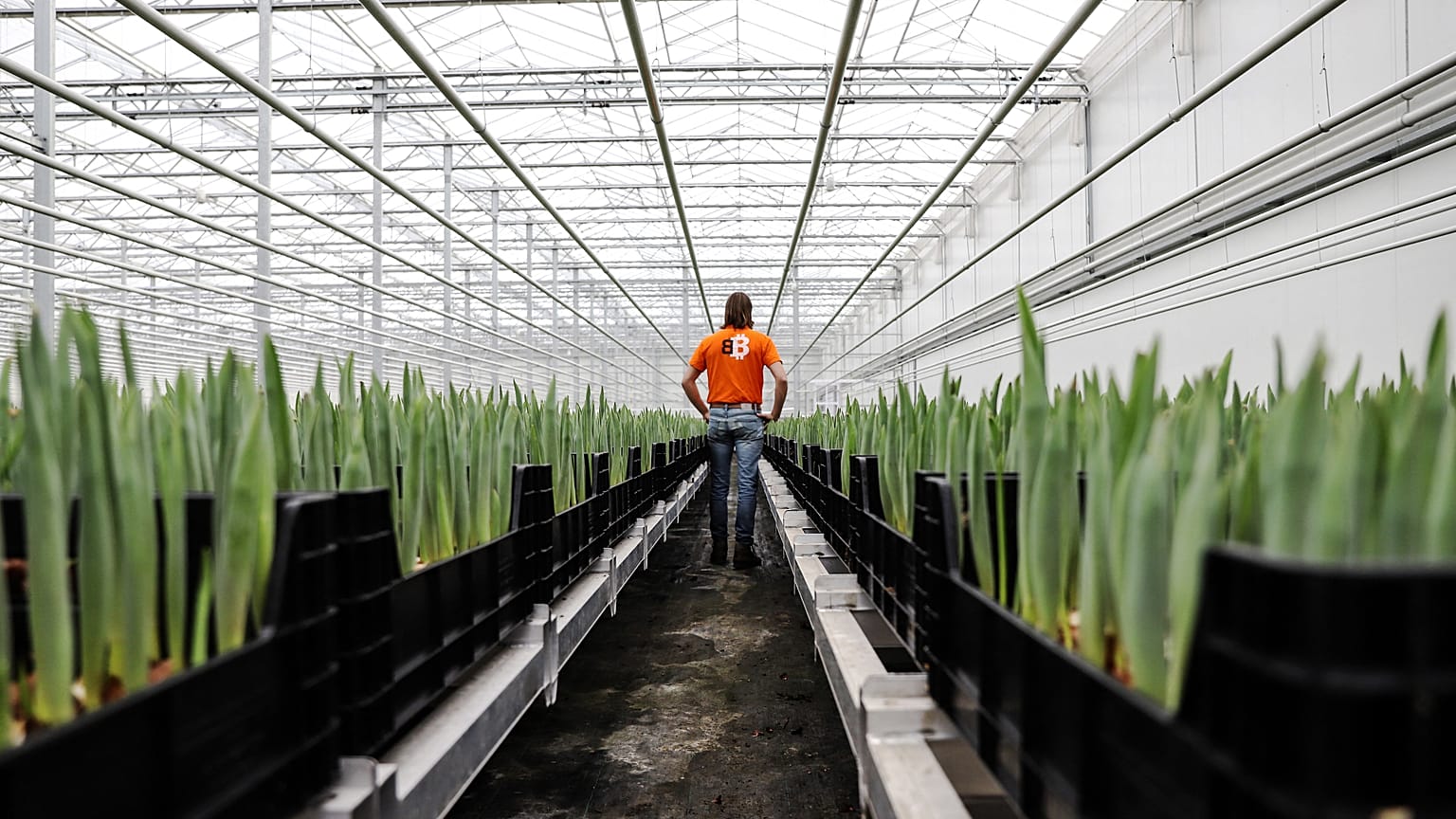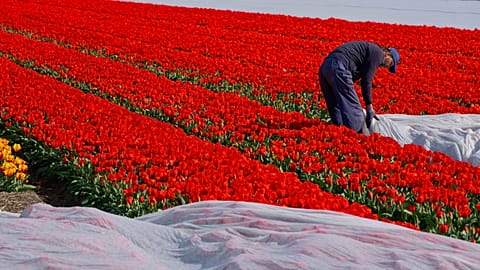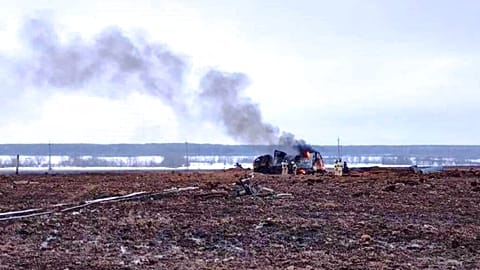A greenhouse in the Netherlands is using the heat generated from cryptocurrency mining to partially heat its large premises, saving on its gas bill.
Amid soaring energy prices, farmers are facing a hard time.
 ADVERTISEMENT
ADVERTISEMENT
 ADVERTISEMENT
ADVERTISEMENT
The situation is not any better for greenhouse farmers in the Netherlands, the world's biggest tulip producer and also the second biggest agricultural exporter overall after the United States.
Huge energy costs have driven some Dutch agricultural firms that often rely on greenhouses to stop growing tulips this year, while others have even gone bankrupt.
"Some growers have decided, because of the increase in gas prices, to stop growing this year and see what happens next year. And in some cases it leads to bankruptcy," said flower farmer Danielle Koning.
To avoid going out of business and creeping overhead costs, Koning has teamed up with a Bitcoin mining firm to heat her giant greenhouse near Amsterdam with mining servers.
Mining for cryptocurrency generates a great amount of heat while requiring huge amounts of electricity to power computer rigs.
"So, Bitcoin miners, they produce a lot of heat. You have a delta [difference] of approximately 20 degrees Celsius between the temperature that goes into the miner and what comes out of the miner,” Bert de Groot, owner of Bitcoin Brabant, explained. And it's because the processors in this computer are constantly trying to guess a random number and that produces some heat".
'Win-win situation'
This is where Koning sees the venture as being a "win-win situation".
The warmth generated by the rigs is now being used to heat the hothouse where rows of tulips grow, cutting the farmers' reliance on gas.
The servers in turn are powered by solar energy from the roof, reducing the normally huge electricity costs for mining, and cutting its potential impact on the environment.
The flower farmer and the mining firm have split ownership of the servers and Bitcoin they produce.
There are six servers operating at the greenhouse, whose exact location Koning asked to keep secret to avoid thieves targeting the €15,000 machines.
The mining firm visits the farm monthly to maintain the rigs, cleaning dust and insects out of the servers' fans.
'Carbon negative' operation
By reducing natural gas dependence and using renewable electricity, the setup at the greenhouse is helping the environment, according to de Groot.
"This operation is actually carbon negative, as are all the operations I basically build," he says.
"We're actually improving the environment".
He is also selling tulips online for Bitcoin via a business called Bitcoin Bloem.
For more on this story, watch the video in the media player above.

















